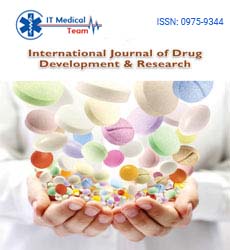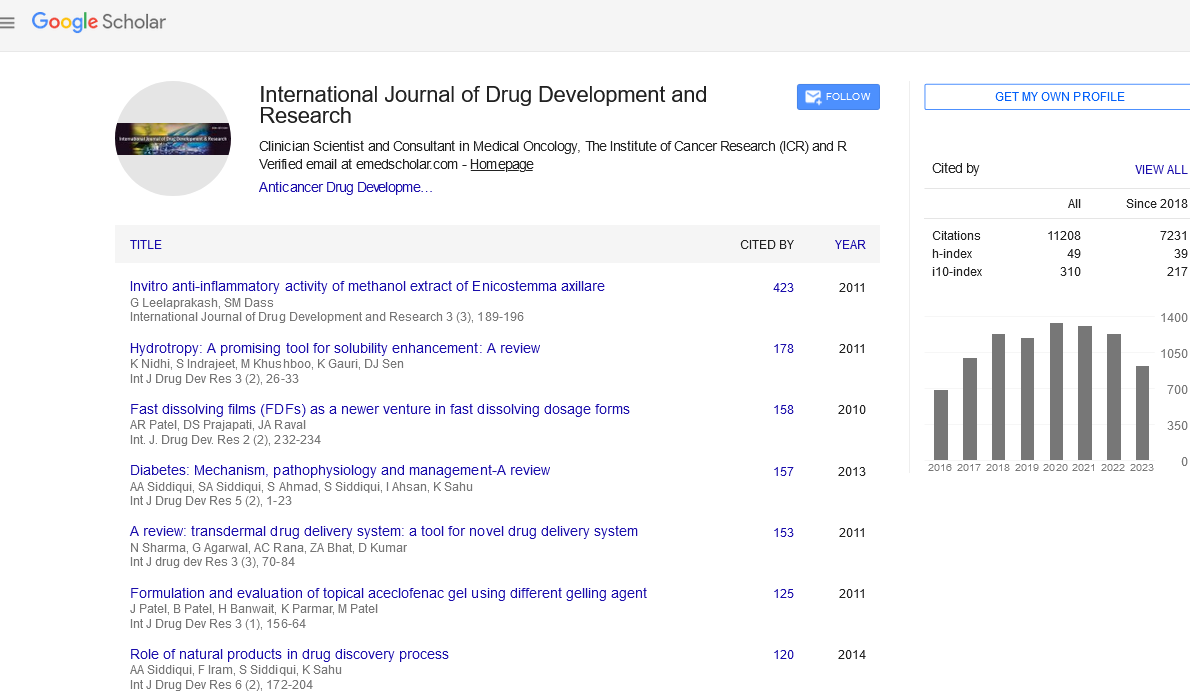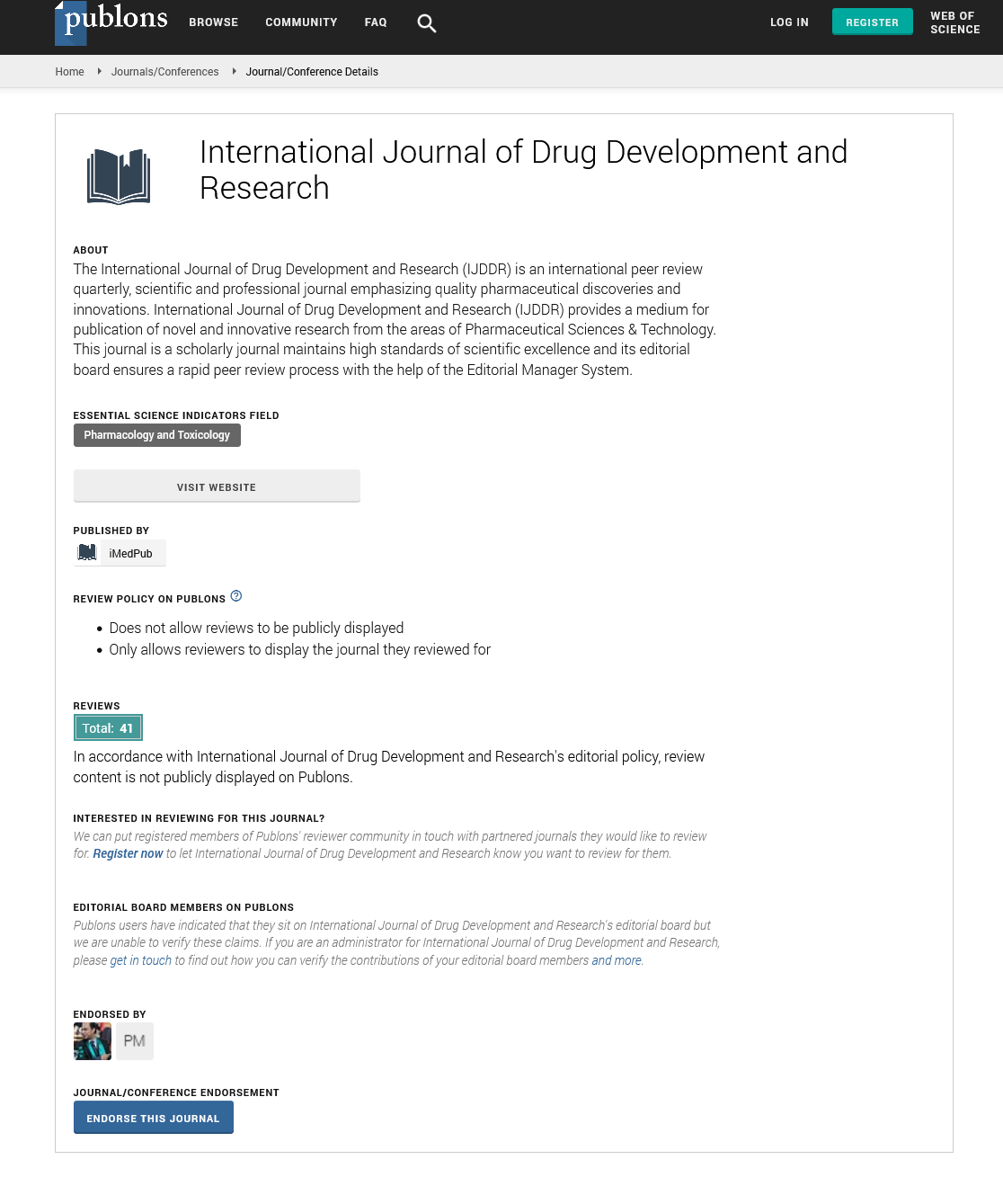| Generic drug is marketed after expiry of patent or marketing right of patented drug. India has huge market of generic medicine. It is reported that the Indian pharmaceutical market is expected to touch US $72 billion sale by 2020 [1]. But recent decision of EU on 700 generic drugs may impact the growth as predicted. The present article aims to analyze the same. |
| Drug development is one process which requires high degree of caution and vigilance as the consequence is huge. Clinical trials of a drug are one of the essential stages in drug development. A clinical trial in simple terms can be defined as set of practice that helps certify a new drug molecule as safe and efficacious before reaching the market. In other words any research conducted on human participants to determine the safety and efficacy of drug is defined as clinical trial. A balance is required to be maintained between launch of new effective drugs on one hand along with adequate protection to human subjects on the other. Most of the countries adopt good clinical practice as law or regulation. Also in India guidelines issued by CDSCO for good clinical practice are required to be complied. |
| On 16th July 2015 the European Commission issued a decision directing all the member states to suspend national marketing authorization of 700 generic drugs [2] tested and approved by Indian lab GKV biosciences, Hyderabad. This decision has been taken by Committee for Medical Product for Human Use (CHPM) of the European medicines agency (EMA) [3]. The issue arose when French medicines and regulatory authority (ANSM) raised questions over the testing and clinical practices of GVK bioscience. European medicine agency in their 23rd January 2015 edition commented that there was no evidence of harm or lack of effectiveness linked to the conduct of studies by GVK Biosciences [4]. Additionally, it was stated that there were manipulation of electrocardiograms (ECGs) during the conduct of some studies of generic medicines. Furthermore, the decision includes exemption for those drugs which are of “critical value” provided that bioequivalence report is submitted for each of those drugs within 12 months of decision. Indian government expressed its concern and mentioned that decision has been taken even though the respective drugs have been in market for several years and were launched after adverse pharmacovigilance report by member states. |
| India has been a prime center for conducting clinical trials because an estimated average cost for conducting phase I/II/III trials in USA is higher than 200 million, which decreases to 50-60% of the total cost when trials are conducted in India [5]. More than half the total cost of a developing drug molecule to be used as a drug is due to clinical research. Very low per patient trial cost, cost effective technical services, nearly half of operational cost, large pool of genetic diversity of population and wide collage of diseases, huge number of government medical colleges, institutions and medical colleges having large number of trained professionals and adequate scientific facilities are certain attributes that attract foreign companies to conduct trials in India. More than 80 hospitals in India are currently engaged in conducting clinical trials in India [6-9]. 1.4% of the total global clinical trials are currently being carried out in India [10]. However this pattern is accounting for more cases of inadequate Informed Consent and unethical treatment of human subjects [11]. |
| Clinical Trials in India are regulated by the following guidelines/ rules such as Rule 122 A to E of Drugs and Cosmetic Act, Schedules Y of Drugs and Cosmetic Act and Rules there under (Amended in 2005), GCP guidelines issued by CDSCO in 2001 and Ethical guidelines for Biomedical Research on Human Subjects by ICMR. Clinical Trials can only be initiated after obtaining written permission from IEC and DCG (I). Application utilizes Form 44 accompanied by the requirement, as per schedule Y, such as documents pertaining chemical, pharmaceutical information, animal pharmacology, toxicology and clinical pharmacology data. |
| In spite of detailed guidelines in the book, their implementation has been a matter of worry for the government. Many cases including Anticancer drug study in Kerala [12], recruitment of poor family’s children at AIIMS resulting in death of around 49 kids [13] that points to the finger at the weaknesses of Institutional Review board/Independent Ethics committee. Furthermore, many startling lapses on the part of Indian drug regulatory bodies have surfaced after the observation of 59th report of the Parliamentary Standing Committee on Health and Family Welfare. Lack of co ordination between various agencies has resulted in approvals of around 33 drugs without any Clinical trials between January 2008 and October 2010 as concluded by the 59th report of Parliamentary Standing Committee on Health and Family Welfare [14]. In India, generally the decision to recall unsafe drugs from the market is adopted after the US or European regulatory authorities take such a step. This is primarily due to the fact that post marketing studies are not undertaken by most of the pharmaceutical companies in India. Even though submission of post marketing surveillance data is mandatory on the pharmaceutical companies, most of the companies do not care to submit such reports to the DCGI [15]. |
| In the light of such circumstances, one cannot be confident that whether the EU decision to ban 700 generic drugs from India is perverse or not. From the economic aspect, the respective EU decision on ban of 700 generic drugs from India may influence the export earnings of the Indian pharmaceutical industry by an estimated 1 to 1.2 billion Dollar. India exported $ 15.4 billion pharma products in 2014- 2015 with Europe alone accounting for $3 billion or 20% of the total. Out of $3 billion, exports of generic medicines constituted to about $1 billion according to pharmexcil. The recent ban if continued will also result in a big blow to the employment statistics of scientists and skilled professionals employed in the Indian generic drug industry. It will also affect the small industries which supply chemicals and raw materials to big names like GVK bioscience. The results of the ban will have a chain reaction, affecting various industries and creating unemployment of skilled professionals. |
| Such a catastrophic decision by EU may finally trigger the Indian Govt. to pass even more stringent regulations for the pharma companies in relation to drugs, especially for generic drug testing and clinical trials. It may be expected that post marketing surveillance criteria will followed strictly by the Indian companies to further avoid any such avalanche in future and prevent a pharma company to suffer immense irreparable loss, both in terms of economy as well as goodwill in the market. |
| |
| |






